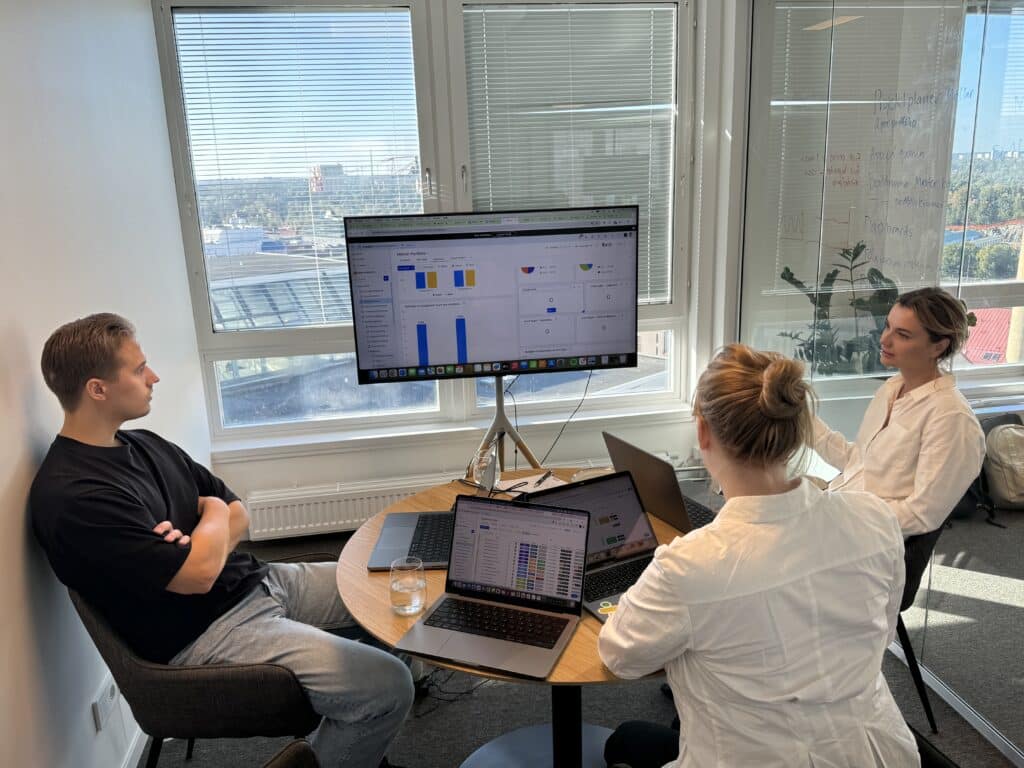Introduction to Legal Considerations in Human Resources
Welcome to our comprehensive guide on legal considerations in HR: navigating workplace regulations. As the backbone of any organization, the Human Resources department plays a pivotal role in ensuring not only the efficient management of employee relations but also in upholding the legal integrity of the company. In today’s dynamic business environment, staying abreast of legal considerations in HR is not just a necessity but a strategic imperative.
The landscape of legal considerations in HR is as vast as it is complex. With laws and regulations constantly evolving, HR professionals must be vigilant and proactive in their approach. This blog post aims to demystify the intricacies of HR laws and provide practical insights into navigating the often-turbulent waters of workplace regulations.
Whether it’s understanding the nuances of employment laws, ensuring compliance with data protection standards, or crafting employee contracts that withstand legal scrutiny, this guide serves as your compass. The legal framework governing HR is not just about adherence. It’s about creating a workplace culture that respects the rights of employees while safeguarding the interests of the organization.
Navigating the legal considerations in HR can be daunting. However, with the right knowledge and tools, it becomes a manageable and even empowering aspect of HR management. In this journey through navigating workplace regulations, we’ll explore the critical areas of legal compliance in HR, share best practices, and highlight the importance of staying updated with the latest legal developments.
So, whether you’re an HR veteran or new to the field, our deep dive into the legal considerations in HR will equip you with the knowledge and confidence to handle workplace regulations with finesse and foresight.
Understanding the Legal Framework in HR
Embarking on the journey of understanding the legal framework in human resources is a crucial step in mastering legal considerations in HR. This section delves into the foundational laws and regulations that form the bedrock of HR legal compliance.
Key HR Laws and Regulations
The realm of HR is governed by a myriad of laws and regulations, each designed to protect both the employer and the employee. These range from federal and state employment laws to more specific regulations. These cover aspects like wage and hour standards, equal employment opportunity, and family leave policies. Understanding this legal tapestry is not just about preventing litigation; it’s about fostering a fair, equitable, and productive workplace.
The Dynamic Nature of HR Legal Compliance
One of the key challenges in navigating workplace regulations is the dynamic nature of these laws. As societal norms evolve and new precedents are set, HR professionals must remain agile and informed. This requires a commitment to continuous learning and adaptation, ensuring that your HR practices not only comply with current laws but are also prepared for future changes.
Balancing Local, State, and Federal Regulations
Another aspect of understanding the legal framework in HR is recognizing the intersection between local, state, and federal regulations. This becomes increasingly complex for organizations operating in multiple jurisdictions or countries. In such cases, navigating workplace regulations takes on an additional layer of complexity. In turn, this necessitates a nuanced approach that respects the legal mandates of each region while maintaining a cohesive company policy.
When to Consult Legal Experts
A robust understanding of the legal framework in HR also involves knowing when to seek expert advice. While HR professionals are expected to have a strong grasp of legal considerations, there are scenarios where consultation with legal experts becomes imperative. This is especially true in cases of potential litigation or complex regulatory compliance issues.
In essence, understanding the legal framework in human resources is about more than just following rules. It’s about creating an organizational culture that values legal compliance as a cornerstone of its operations. As we delve deeper into specific aspects of legal considerations in HR: navigating workplace regulations, remember that this knowledge is a powerful tool in shaping a responsible, respectful, and legally compliant workplace.
Omnitas Newsletter
Sign up for our monthly newsletter to stay up-to-date on our latest blog articles, videos and events!
Thank you!
You have successfully joined our subscriber list.
Privacy and Data Protection in HR
In the realm of legal considerations in HR: navigating workplace regulations, privacy and data protection are increasingly pivotal. This section delves into the intricacies of managing personal data in the HR context, aligning with stringent legal standards.
Overview of HR Privacy Laws
Understanding privacy laws like the General Data Protection Regulation (GDPR) in the European Union and similar regulations worldwide is crucial for HR professionals. These laws govern the handling of personal data and impose strict penalties for non-compliance. They aim to protect individuals’ privacy rights and necessitate a thorough approach from HR in terms of data handling and employee information management.
Implementing Data Protection Strategies
Effective data protection strategies are essential in HR operations. This involves establishing robust protocols for data collection, storage, processing, and sharing. HR departments must ensure that all personal data is handled securely, with appropriate technical and organizational measures in place to prevent unauthorized access or data breaches.
Navigating Employee Consent and Rights
Consent is a cornerstone of data privacy laws. HR must ensure that employee consent for data processing is freely given, specific, informed, and unambiguous. It’s also vital to respect employees’ rights regarding their data, including the right to access, rectify, and, in some cases, delete their personal information, adhering to the legal frameworks in place.
Training and Awareness in Data Protection
Training HR staff in privacy and data protection is critical. Regular training sessions can help create a culture of data privacy awareness within the organization. This not only includes understanding the laws but also recognizing potential data privacy risks in daily HR activities.
Regular Audits and Compliance Checks
Conducting regular audits is key to ensuring ongoing compliance with privacy and data protection laws. These audits can help identify any gaps in the current data handling practices and rectify them promptly. Utilizing tools and processes specifically designed for data protection audits can aid HR departments in maintaining high compliance standards.
Privacy and data protection in HR is not just about legal compliance but also about building trust and integrity within the organization. As we continue to explore Legal Considerations in HR, it becomes evident that effectively managing privacy and data protection is a vital skill for HR professionals in today’s digital and data-driven world.
Navigating Employee Contracts and Agreements
In the intricate world of legal considerations in HR: navigating workplace regulations, the creation and management of employee contracts and agreements hold a significant place. This section addresses the essentials of drafting legally sound and clear employment agreements.
Fundamentals of Crafting Employment Contracts
Crafting employment contracts is an art that balances clarity, fairness, and legal compliance. These contracts should clearly outline the terms of employment, including job responsibilities, salary, benefits, and termination conditions. It’s crucial for HR professionals to ensure that these contracts are not only comprehensive but also compliant with relevant labour laws to prevent future disputes and legal issues.
Common Pitfalls in Employment Agreements
One of the key challenges in navigating employee contracts is avoiding common pitfalls that can lead to legal complications. These include vague language, unrealistic job expectations, and clauses that may be seen as unfair or discriminatory. HR professionals must be vigilant in reviewing and updating contract templates to align with current legal standards and organizational policies.
Legal Enforceability of Contracts
Understanding the legal enforceability of various clauses in employment contracts is vital. This involves knowledge about the legal validity of non-compete agreements, confidentiality clauses, and other restrictive covenants. HR must navigate these complexities to ensure that the contracts protect the company’s interests without infringing on employee rights or breaching legal standards.
Adapting Contracts for Global Workforces
For organizations with a global presence, adapting employment contracts to suit different legal jurisdictions is a significant task. This includes understanding and incorporating various international labour laws and cultural considerations into contracts. Tailoring agreements to fit the legal framework of each country is crucial for global HR compliance.
Navigating employee contracts and agreements is a critical aspect of legal considerations in HR. This process demands attention to detail, legal knowledge, and a deep understanding of both employer and employee needs. By mastering this area, HR professionals can significantly contribute to the smooth operation and legal integrity of their organizations.
Health and Safety Regulations in the Workplace
Legal considerations in HR: navigating workplace regulations extends into the crucial area of health and safety in the workplace. This section focuses on the role of HR in maintaining a safe work environment and complying with health and safety laws.
Understanding OSHA Standards and Compliance
The Occupational Safety and Health Administration (OSHA) sets forth standards that are central to workplace safety in many countries. HR’s role involves understanding these standards and implementing policies and procedures that ensure compliance. This includes regular safety training, emergency preparedness, and creating a culture of safety awareness within the organization.
Risk Assessment and Prevention Strategies
Conducting regular risk assessments is key to identifying potential hazards in the workplace. HR should work closely with health and safety officers to develop prevention strategies that mitigate risks. This involves everything from ergonomic assessments to addressing psychological hazards, ensuring a holistic approach to employee well-being.
Managing Workplace Injuries and Reporting
In the event of workplace injuries, HR plays a pivotal role in managing the situation. This includes providing immediate assistance, ensuring proper medical care, and handling the reporting process as per legal requirements. HR must also oversee the investigation of such incidents to prevent future occurrences and maintain compliance with health and safety regulations.
Promoting Wellness and Mental Health
Beyond physical safety, modern HR practices also encompass the promotion of overall wellness and mental health. This involves implementing programs that support employee well-being, such as stress management workshops, access to counselling services, and initiatives that encourage a healthy work-life balance.
Adapting to Remote Work Health and Safety
With the rise of remote work, HR is also tasked with extending health and safety considerations to the virtual workspace. This includes ensuring that home offices meet safety standards, addressing the unique challenges of remote work-related stress, and fostering a healthy remote work culture.
In the context of navigating workplace regulations, the importance of health and safety regulations cannot be overstated. By prioritizing these aspects, HR professionals not only ensure legal compliance but also demonstrate a commitment to the well-being and safety of their workforce, an essential component of a successful and responsible organization.

Adapting to Remote Work Regulations
As we delve further into legal considerations in HR: navigating workplace regulations, the shift towards remote work presents new challenges and considerations for HR professionals. This section explores the legal intricacies of managing a remote workforce.
Understanding Remote Work Legal Challenges
The transition to remote work has introduced unique legal challenges for HR. These include complying with labour laws that vary by location, especially when employees work across different states or countries. HR must navigate these complexities to ensure that the organization’s remote work policies are legally sound and fair for all employees.
Compliance with Cross-State or International Labor Laws
For companies with employees working remotely in different jurisdictions, compliance with varying labour laws becomes critical. This includes understanding and adhering to different minimum wage laws, work-hour regulations, and employee rights. HR plays a key role in aligning company policies with these diverse legal requirements.
Remote Work Agreements and Policies
Crafting remote work agreements and policies is essential in this new work environment. These agreements should clearly outline expectations regarding work hours, communication, data security, and employee performance. HR must ensure that these policies are transparent, fair, and in compliance with legal standards.
Data Security and Privacy in Remote Work
With remote work, ensuring data security and maintaining privacy becomes more challenging yet imperative. HR should collaborate with IT departments to implement robust data protection measures and educate remote employees on best practices for safeguarding sensitive company information.
Supporting Employee Well-being in a Remote Setting
The well-being of remote employees is a significant consideration. HR should develop strategies to support mental and physical health in a remote environment. This includes promoting work-life balance, providing resources for mental health, and ensuring regular communication and engagement with remote team members.
Adapting to remote work regulations is a dynamic and evolving aspect of legal considerations in HR. As HR professionals, staying informed and flexible in the face of these changes is crucial for legal compliance and for fostering a productive, secure, and supportive remote work culture.
Best Practices and Lessons Learned
In our exploration of legal considerations in HR: navigating workplace regulations, examining real-world scenarios provides valuable insights. This section distils best practices and lessons learned in HR legal challenges.
Key Best Practices in HR Legal Compliance
- Proactive Learning and Adaptation: Stay informed about the latest legal changes and trends in HR. Regular training and development for HR professionals are crucial to keep pace with evolving laws and regulations.
- Comprehensive Documentation: Maintain meticulous records of all HR processes, from hiring to termination. This includes keeping detailed employee records, contracts, and compliance documentation.
- Clear Communication: Transparent and consistent communication with employees about their rights, company policies, and any changes in employment laws is essential. This fosters trust and reduces the likelihood of misunderstandings.
- Collaboration with Legal Experts: Establish strong partnerships with legal experts to ensure HR policies and practices are legally sound. Regular consultations can prevent potential legal issues.
- Employee Engagement and Feedback: Actively seek and incorporate employee feedback. This can help identify potential areas of concern before they escalate into legal challenges.
Lessons Learned from HR Legal Challenges
- Anticipate and Plan for Legal Changes: It’s very important to anticipate legal changes and proactively adjust HR policies accordingly.
- Cultural Sensitivity and Global Awareness: For multinational companies, being culturally sensitive and aware of global legal differences is key. Adaptation to local laws and customs is crucial in global HR management.
- Importance of Ethical Practices: Ethical considerations often align with legal requirements. Upholding high ethical standards can prevent many legal issues in HR.
- Risk Management Strategies: Implementing effective risk management strategies can mitigate potential legal risks in HR operations.
- Learning from Mistakes: Embracing a culture where learning from past mistakes is encouraged can significantly strengthen an organization’s legal compliance framework.
In navigating workplace regulations, learning from real-life scenarios is invaluable. These best practices and lessons learned serve as a guide for HR professionals striving to navigate the complex legal landscape of HR with confidence and expertise.
Conclusion
As we conclude our exploration of legal considerations in HR: navigating workplace regulations, it’s clear that the landscape of HR legal compliance is both vast and dynamic. The complexities of navigating workplace regulations require not only a deep understanding of the laws but also a commitment to ethical practices and continuous learning.
HR professionals play a critical role in ensuring that organizations not only adhere to legal standards but also foster a culture of fairness, safety, and respect. From understanding the intricacies of employment contracts to adapting to the challenges of remote work, the responsibilities are diverse and ever-evolving. However, with the right approach and resources, these challenges transform into opportunities to enhance workplace efficiency and integrity.
Remember, staying informed and proactive in the face of legal changes is crucial. By embracing the best practices and lessons learned discussed in this guide, HR professionals can navigate the complex legal terrain with confidence and expertise, contributing significantly to the success and sustainability of their organizations.
If you found this article insightful and wish to stay updated on similar topics, as well as gain insights into general business efficiency, we invite you to subscribe to our monthly newsletter below.














